In the end, Patriots win ‘chess match’
Wikimedia Commons/Creative Commons license
Seattle coach Pete Carroll in happier times. His call at the end of Super Bowl XLIX has been blamed for the team’s loss.
The final minute of Super Bowl XLIX brought out every emotion in fans: confusion, anger, elation, shock … the list goes on.
While the fans were in awe and riding that wave of emotion—even as many Patriots players looked on and wondered how yet another miracle catch could spoil a third straight championship moment—the coaching staffs were engaged in a chess match.
More accurately, it was a chess match fused with an old-fashioned game of chicken, and head coaches Bill Belichick of New England and Seattle’s Pete Carroll waited to see who would blink first.
It culminated, of course, in Malcolm Butler’s interception of a Russell Wilson pass at the goal line, sealing a 28-24 Patriots victory over the Seahawks—New England’s fourth Super Bowl championship and a legacy-defining moment for Belichick and star quarterback Tom Brady, the game’s most valuable player.
Lost amid that moment and all the confetti, streamers, hugs, and high fives that followed was a final minute filled with more twists than a movie thriller.
It started with a catch that defied all description and logic, as Jermaine Kearse hauled in a pass that was tipped by Butler and bounced off both of Kearse’s legs as he fell to the ground. As Brady looked on in disbelief from the sideline, Seattle set up at the New England 5-yard line with a minute to play.
From there, it was easy for casual fans to miss all the nuance, the game-within-a-game tactics that unfolded as most people struggled to catch their breath.
Marshawn Lynch took a handoff from Russell and gained four yards before Dont’a Hightower somehow brought down “Beast Mode” with a game-saving tackle. The clock ticked down.
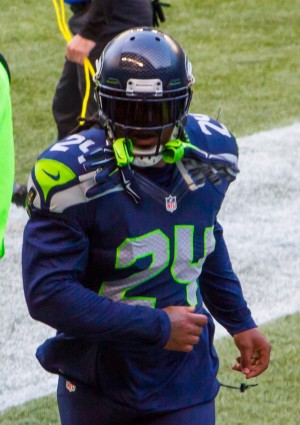
Should the Seahawks have given Marshawn Lynch the ball in the final 30 seconds of Super Bowl XLIX?
And it kept ticking, as neither Belichick nor Carroll called timeout. Who would blink? In the end, you can say that Carroll closed his eyes and swerved, deciding on a slant from Wilson to Ricardo Lockette with about 30 seconds left instead of another handoff to Lynch, the most devastating runner in short-yardage situations in the NFL.
So what happened? Why didn’t Belichick call a timeout to give Brady almost a minute to engineer a drive should the Seahawks have scored?
The Patriots taking a timeout would have essentially sealed the deal for Seattle because it would have given the Seahawks more time to come up with a play and to clear their heads.
They almost certainly would have run the ball. With three plays left (because it was second-and-goal after the Lynch run) the Seahawks would have to pass at least one time if they had been stopped.
But it’s harder to commit to that run when the clock is ticking and there isn’t a lot of time to conference. If Belichick had called the timeout the Seahawks would have any play at their disposal and endless personnel options because the clock was stopped.
Since the Seahawks stayed on the field, Belichick was able to see what personnel the Seahawks had out there and he made the appropriate substitutions, which was a goal line set.
The goal line set dared the Seahawks to run the ball and tempted them to pass. Risky? You bet. The potential payoff? Well, everybody saw Butler step in front of Lockette, pick off the pass, and force Carroll to yell “Oh no!” on the sideline.
Carroll has, understandably, taken the most criticism for the debacle that was the last 40 seconds for Seattle. The buck does stop with the head coach.
But the explanation for Carroll not taking a timeout is quite simple. If the Seahawks scored after they stopped the clock there would have been plenty of time for the Patriots to go down the field and kick a game-winning field goal, especially with two timeouts remaining.
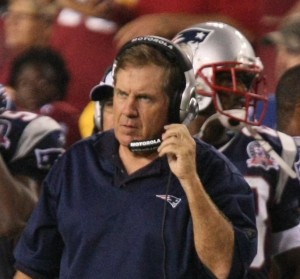
Patriots coach Bill Belichick arguably out-coached Pete Carroll to win his fourth Super Bowl championship.
The Seahawks were playing for the final possession of the game, which is exactly what they should have done. The only real case for Carroll costing the Seahawks the game was the pass instead of a handoff to Lynch with less than 30 seconds to play.
Was it the worst call in the history of the Super Bowl, as some have claimed? Was it a bonehead move of epic proportions? Did it show exactly why Carroll was shown the door when he was Patriots coach, setting up Belichick’s arrival?
Not exactly. The call to throw the ball was not a horrible decision; had Butler been even a split-second later to the ball, Lockette makes the catch, he glides into the end zone, and the Seahawks almost certainly win.
Carroll likely would have been heralded for his guts. Instead, the outcome is negative instead of positive, and love around Puget Sound turns to hate.
Every team in the NFL has the play that the Seahawks decided to run, a simple slant route in which one wide receiver is supposed to bump one defensive back into another defensive back and disrupt the coverage. The Patriots ran the same play countless times in short-yardage situations throughout the regular season.
But given the magnitude of the moment, the options for that final play will be replayed and rehashed for decades. Hand the ball to Lynch and he scores nine times out of 10. There’s a reason Lynch is called “Beast Mode.”
Or use Lynch as the perfect decoy. With one of the most elusive running quarterbacks in the league, the Seahawks could also have elected to run a pass-option with Wilson, who could have kept it himself for a jaunt into the end zone.
Seattle used that type of play multiple times against Green Bay in the NFC Championship, and it was one of the main reasons for the Seahawks’ 16-point comeback that sent them to the Super Bowl.
Ultimately, the Seahawks ended up losing the game because Carroll lost a unique coaching chess match. He let Belichick dictate the tempo and personnel of the final 30 seconds of the biggest game of the year.
Checkmate.

Nick LaPan is a senior at AMSA but is not advanced in math or science. He is, however, advanced in sports. His passion for sports is what really drives...

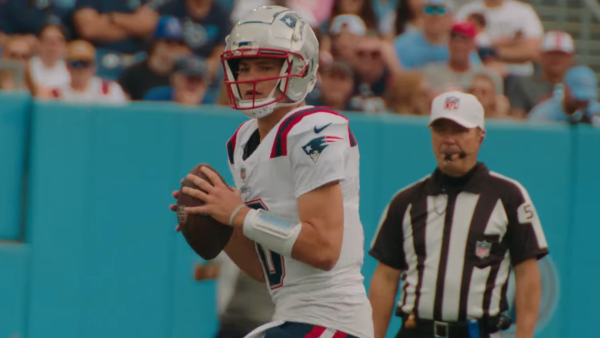
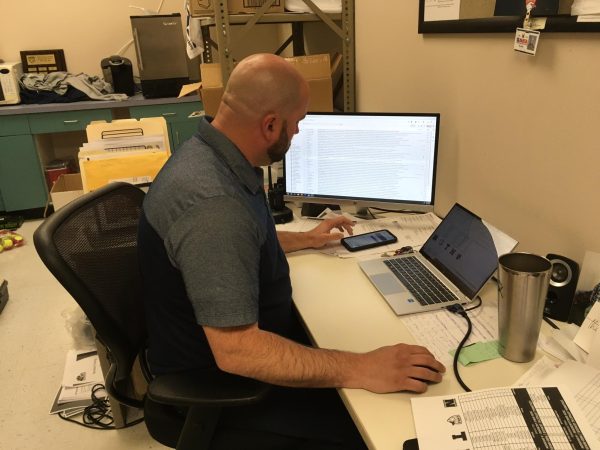
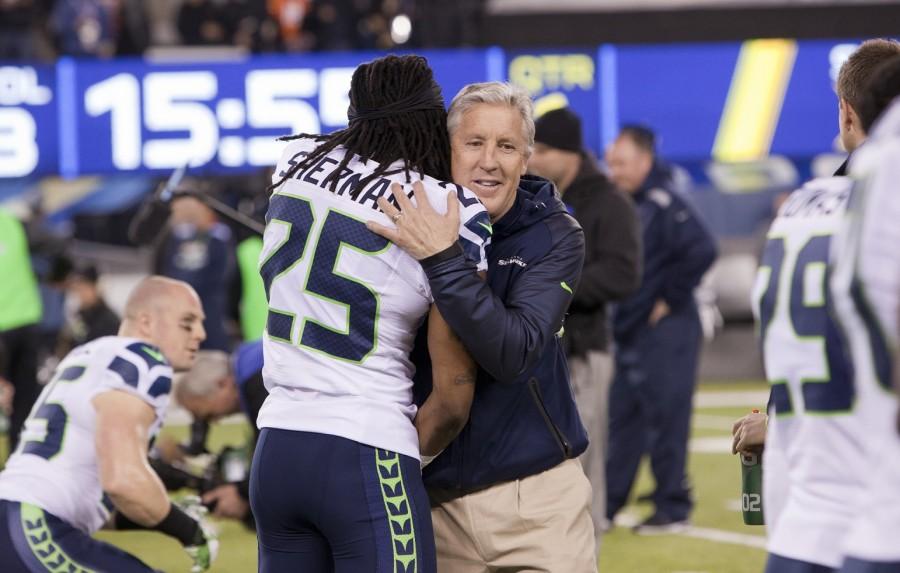
tom • Feb 7, 2015 at 7:28 pm
Good read, but you failed to touch upon several things. “If the Seahawks scored after they stopped the clock there would have been plenty of time for the Patriots to go down the field and kick a game-winning field goal, especially with two timeouts remaining.” Seattle would have taken a 3 point lead with approx 30 seconds left. That is not “plenty of time” and the FG would have only tied the game. Also, a major reason why Carroll may not have run the ball is because of what happened 2 years ago in the divisional round when they scored with Beast Mode with half a minute left, but Atl was able to kick the game winning field goal. Lastly, you failed to mention Browner’s excellent play. He jammed the Kearse, not allowing him to pick Butler, who in turn was able to step in front of the ball for the game. IMO not any other corner in the game could have made that play besides the physical Browner. Also “Beast Mode” was only 1/5 on attempts from the 1 yd line this year. I think passing the ball was not bad, but the actual play call was. Run a bootleg or throw it to the outside or something.
John • Feb 8, 2015 at 11:09 pm
agree with tom
AH • Feb 11, 2015 at 10:04 pm
Agree with tom except for the first part:
If Bellichick had opted to use the timeout ASAP there would have been around 58 seconds left on the clock, assuming the Seahawks scored within about 4-5 seconds there would have been about 53 seconds left, not 30.
Another thing to possibly mention would have been the situation of Super Bowl XLVI where they let Ahmad Bradshaw score to give time to Brady. That also would have been an option had Bellichick taken a timeout.
All that aside, great article!